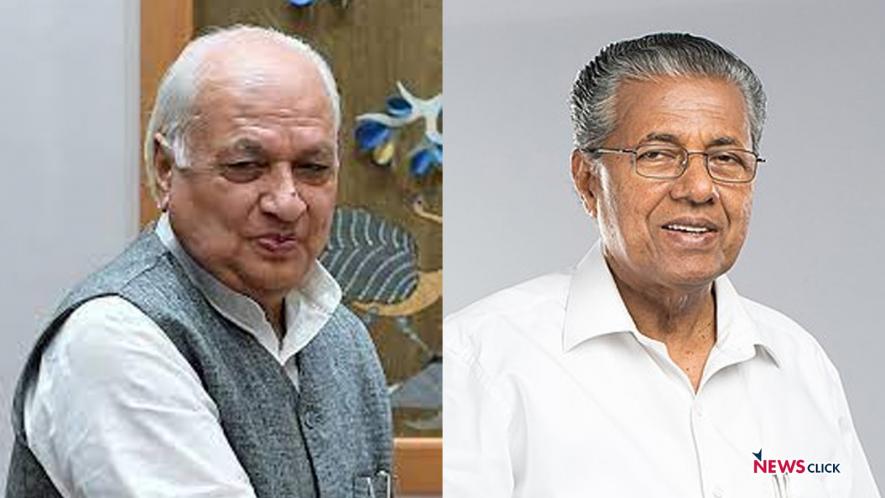Kerala: Bill Replacing Governor as Chancellor of Universities Tabled in Assembly

File Photo.
Thiruvananthapuram: The Left Democratic Front (LDF) government of Kerala tabled the University Laws (Amendment) Bill, to replace the Governor from the post of Chancellor of the state-run universities in the Assembly on December 7.
The government has made its intentions clear on appointing renowned academicians or persons of repute as Chancellors of universities in Kerala. The Bill has been referred to the subject-select committee.
Meanwhile, the department of Cultural Affairs appointed renowned artiste Mallika Sarabhai as the Chancellor of Kerala Kalamandalam (deemed to be) University for Art and Culture.
The move has come after the “continuous interference” of Governor Arif Mohammed Khan in the administrative functioning of the state universities, said LDF sources.
The Opposition United Democratic Front (UDF), despite supporting the removal of the Governor as Chancellor, opposed the Bill citing University Grants Commission (UGC) norms and the Supreme Court verdict.
‘EMINENT ACADEMICIAN AS CHANCELLOR’
The minister for Law, P Rajeev, who introduced the University Laws (Amendment) Bill in the Assembly, informed the House that the government intends to appoint renowned academicians and eminent personalities as Chancellors of the universities.
“The government shall appoint an academician of high repute or a person of eminence in any of the fields of science including agriculture and veterinary science, technology, medicine, social science, humanity, literature, art, culture, law or public administration as the chancellor of the university”, as per the Bill.
The UDF leaders questioned the intentions of the LDF government and accused it of politicising the campuses. The party also questioned the financial memorandum and the government’s claim of no additional burden as a result of the appointment.
Responding to the discussions, Rajeev said: “We have appointed Mallika Sarabhai as the Chancellor of Kalamandalam University. She has won numerous international and national accolades. We have the best person for the job and would continue this model.”
The minister also pointed to the appointment of chief ministers as the Chancellors of the universities in Congress-ruled states like Rajasthan and Chhattisgarh. “We do not want to replicate such a model here”, Rajeev said.
‘THREAT TO POWER OF STATE LEGISLATIONS’
With education placed in the concurrent list, the discussion on the Bill dedicated more time to the powers of the state legislations and legislature and threats considering the present political situation.
Answering the questions raised by the UDF leaders, Rajeev said: "Article 254 says if there is a difference between allowing made by the parliament and law made by the legislative assembly the law made by Parliament will prevail in the concurrent list.”
He went on to add that the Subordinate Legislation made by an authority other than the legislature can supersede the legislation made by the state assemblies.
"An executive order can annul, modify and amend the legislation passed by the legislature. Is the UGC guideline more powerful than the state assemblies?” he questioned the UDF members who opposed the contents of the Bill.
On the continuous attack by the Bharatiya Janata Party (BJP) led Central government on federal principles, Rajeev questioned the rationale behind the Central government making laws on state subjects.
“Agriculture, agricultural research and education are state subjects. Were any state governments consulted before the farm laws were introduced? Considering the current sequence of events on the attack on federalism and parliamentary democracy, the House should set an example on exercising its powers,” he said.
Get the latest reports & analysis with people's perspective on Protests, movements & deep analytical videos, discussions of the current affairs in your Telegram app. Subscribe to NewsClick's Telegram channel & get Real-Time updates on stories, as they get published on our website.
























